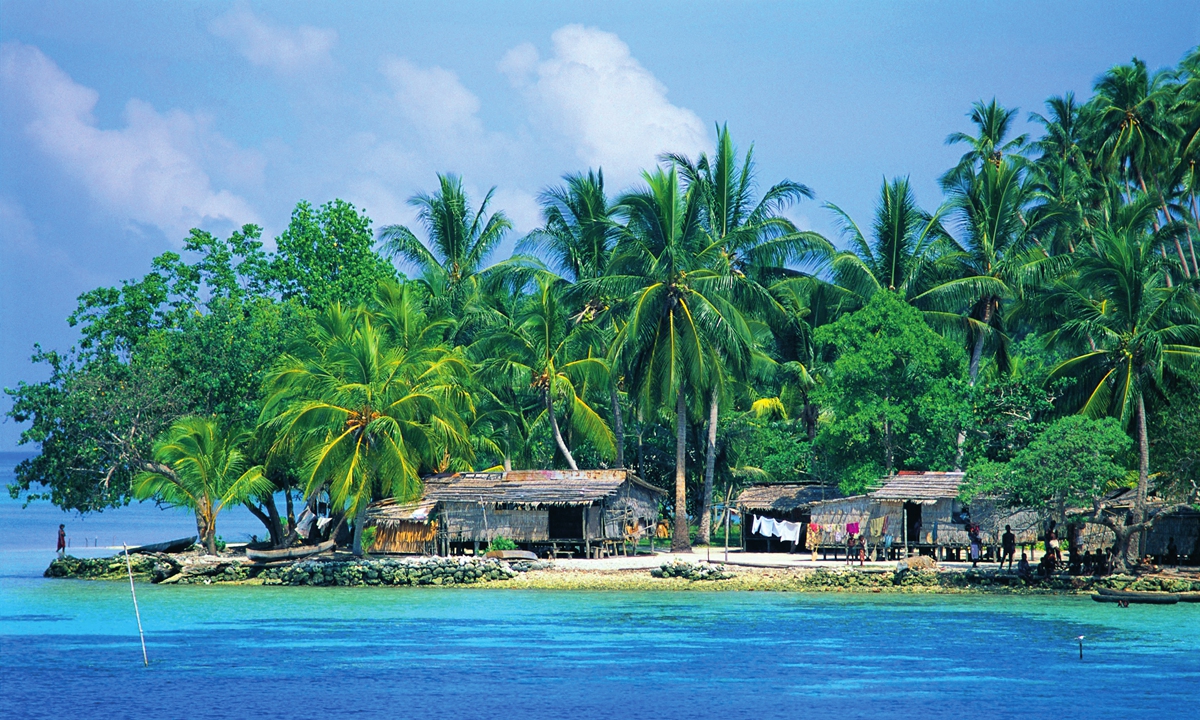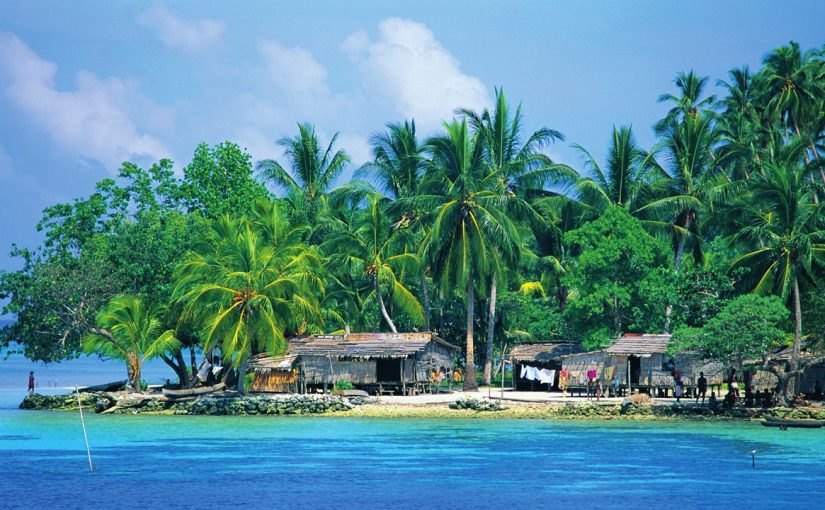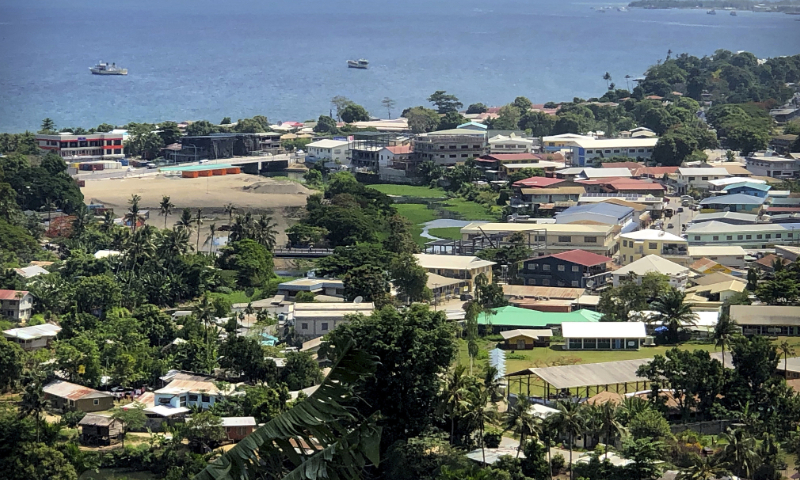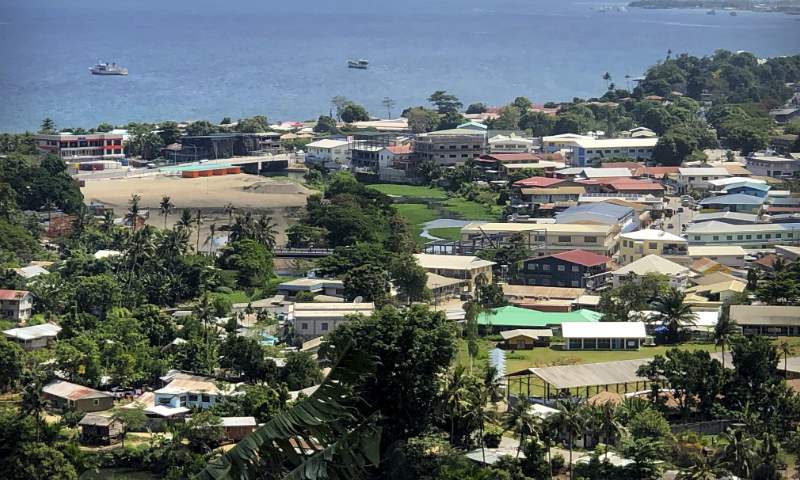
Scenery of Solomon Islands Photo: IC
The Solomon Islands is set to hold general elections on Wednesday, a significant event that follows the establishment of diplomatic ties with China in 2019 and the subsequent shift in regional dynamics. This election is not just a domestic affair but has attracted international attention, particularly due to the alleged interventions and influence exerted by foreign powers.
In a statement on Tuesday, the US Embassy in Honiara, the capital of the Solomon Islands labeled recent accusations of its alleged interference in the Solomon Islands’ election as “questionable” and “disinformation.”
Li Haidong, a professor at the China Foreign Affairs University, shed light on the historical pattern of US involvement in foreign elections, stating, “It is a traditional and deeply-rooted practice that when the US claims non-interference, it’s either hard to believe or astonishing.”
He further suggested that recent media focus on China’s role in the election could be attributed to US machinations, aligning with its long-standing modus operandi of meddling in other nations’ affairs.
The statement issued by the US Embassy came after an investigative article published by Russia’s Sputnik news agency criticized the US’ role and intentions in the Solomon Islands’ elections, suggesting that the US Agency for International Development (USAID) might be attempting to influence the election outcome through “democracy promotion” activities, in order to counter China’s influence in the region.
The article detailed USAID activities in the Solomon Islands, including engaging with local community political leaders, civil society organizations, and influential individuals, as well as funding surveys and training programs to bolster anti-government sentiment. An anonymous source disclosed to the Sputnik news agency that they fear the US might incite another riot during the upcoming elections to achieve its geopolitical goals.
Amid growing cooperation between China and the Solomon Islands, the US announced the reopening of its embassy in Honiara in February 2023. According to AFP, the embassy had been closed since 1993, following the end of the Cold War.
With the elections fast approaching, the US Ambassador conspicuously arrived in Honiara in March.
With the looming elections, international media outlets have increasingly highlighted China’s influence, focusing on opposition figure Daniel Suidani, who has closely aligned himself with the island of Taiwan in the past. Suidani expressed concerns to the AFP over China’s “increasing control” in the Solomon Islands, describing it as alarming.
In response, Lin Jian, a spokesperson from China’s Foreign Ministry, at a daily press conference on Tuesday, emphasized that China upholds the principle of non-interference in other countries’ internal affairs, and supports the people of the Solomon Islands in choosing a development path that suits their national conditions.
National sentiment in the Solomon Islands toward China’s involvement is largely positive.
On the Chinese Embassy in Honiara’s Facebook, comments from local netizens reflect appreciation for the aid and grants provided by China, with posters expressing their desire for continued support and mutually beneficial cooperation.
Voting in the Solomon Islands general elections is set to take place on Wednesday. It is the first election cycle since China and the Solomon Islands established diplomatic ties on September 21, 2019. Half a month later, Solomon Islands Prime Minister Manasseh Sogavare paid his first visit to China, during which the Solomon Islands officially joined the Belt and Road Initiative (BRI).
Since establishing diplomatic ties with China, the Solomon Islands has seen improvements in infrastructure, livelihoods, and social stability, with the successful hosting of the Pacific Games in a stadium built with China’s assistance.
Yu Lei, chief research fellow at the Research Center for Pacific Island Countries of Liaocheng University, highlighted the positive outcomes of China’s cooperation with the Solomon Islands, noting the increase in employment rates and the establishment of joint and wholly-owned enterprises. These developments have not only benefited the local population but also served as a model for other Pacific Island nations, prompting closer cooperation with China.
Global Times


